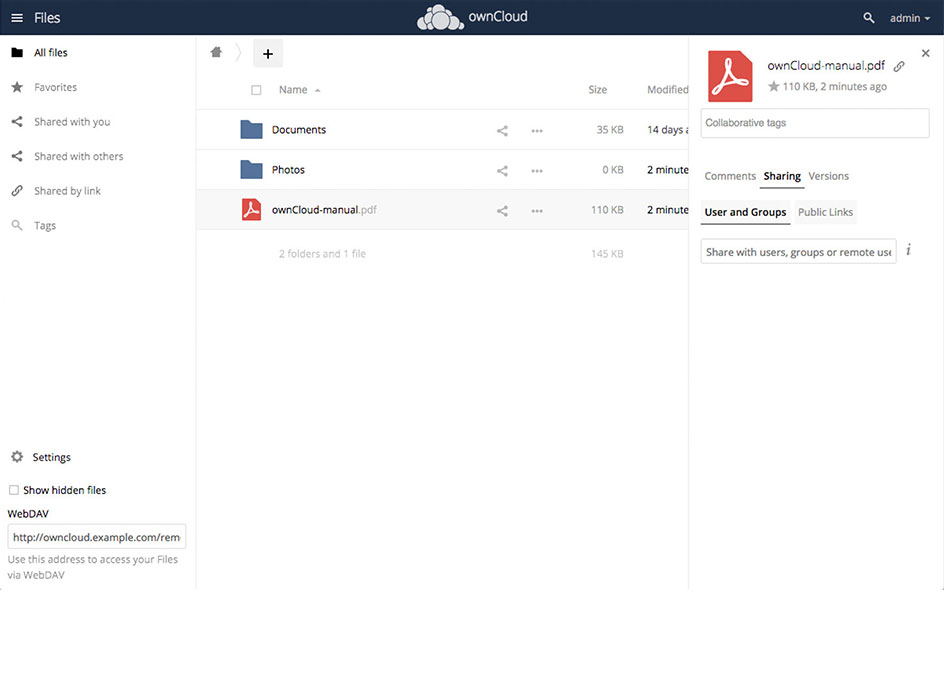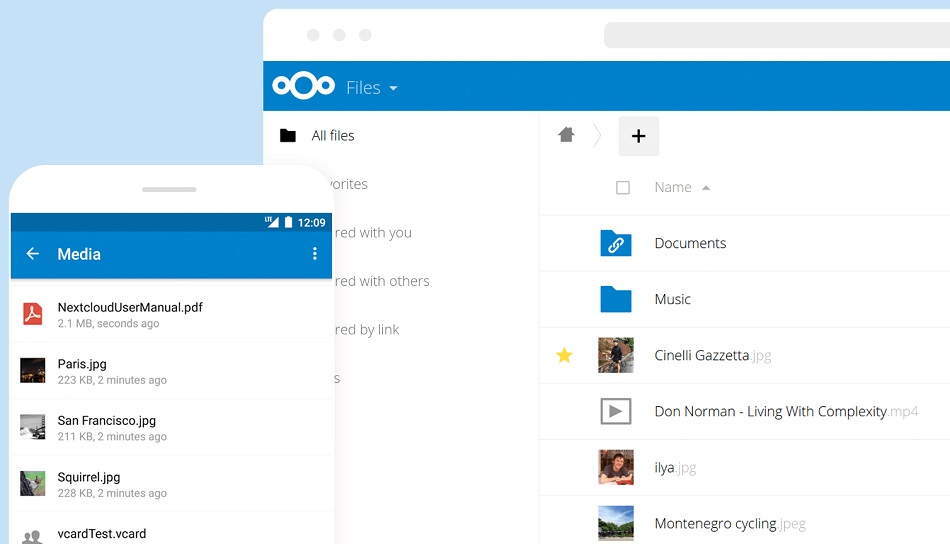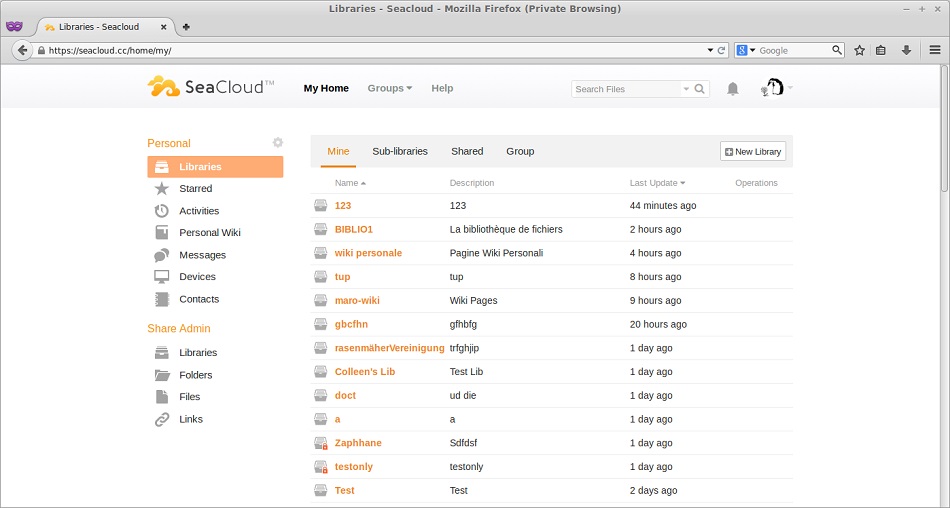More companies than ever before have embraced cloud storage. So whether you are in the office, on the road, or at home, you can access your files from everywhere. Not only that, cloud computing provides offsite storage of data, thus ensuring your digital security. When it comes to cloud storage, the big divide is between self-hosted options and major services controlled by large corporations. We’ll dive into the leading platforms to help you decide which cloud storage option is best for your company.
ownCloud
ownCloud has broken through during the last few years as a leading self-hosted cloud storage option. It was also the first significant alternative to proprietary platforms like Dropbox. It’s easy to use and features a polished web interface compatible with the majority of mobile and desktop devices. Key features include:
- Very large file size support
- Cross-platform
- Automatic folder sync
- Online office suite
- Two-factor authentication
- File accessibility control
Nextcloud
Nextcloud began as an offshoot of ownCloud. It has all the same amazing features of ownCloud only with additional functions from there. One of its essential features has been a collaboration with freeware LibreOffice which created Collabora Online Office – an open-source option for Google Docs. Nextcloud continually evolves, and experts consider it the most feature-rich self-hosted cloud platform.
- Cross-platform
- Very large file support
- Push notifications
- Automatic folder sync
- Outlook and calendar integration
- Text, video, and voice chat
- Two-factor authentication
- Support for Kanban
- Dual-side encryption
If you are looking for a version of ownCloud with more features, then be sure to check out Nextcloud.
SeaFile
The developers of SeaFile began working on their cloud platform before ownCloud, though it hasn’t quite reached the same popularity. Businesses love Seafile’s speed and security. In recent years, it has grown from a simple file-sharing program to a fully functioned program able to compete with Dropbox and Google Drive.
- Fully cross-platform
- Public link sharing
- File encryption
- Dual-side encryption
- Automatic folder sync
- File access control
Open Source Options: The Bottom Line
There are many fantastic options out there. If you’re looking for a fully-functioned, versatile platform, then check out Nextcloud. For a more streamlined and simple approach, SeaFile is a great option for you.
Need a server for your self-hosted cloud storage app? Sign up at Vultr.
Proprietary Cloud Services Breakdown
Most people use proprietary cloud services. They are the big names we all recognize. Overall, they’re easy to use and packed with great functions at typically affordable prices. However, with proprietary platforms, everything you upload may be available for these major companies to use in some way.
They may sell your data to advertisers, claim ownership of anything uploaded to their servers, or simply reserve the right to use it in whatever way they see fit. So be sure you read the terms of service agreement thoroughly before choosing one. We’ll dive into two of the biggest players in proprietary services so you can understand how they differ from their open-source alternatives.
Dropbox
Dropbox was the original name when it came to cloud storage. Founded in 2008, it was the first major company to offer cloud file hosting services and has only grown since then. It’s easy to use, works across platforms, and even includes a helpful tutorial to help you get started. Dropbox also boasts many great features such as reverting to previous versions of files and easy collaboration with peers.
You can also get 1 Terabyte of storage for just $9.99 per month (or 2GB for free). Large and small businesses around the world use the software, so it’s very familiar to most people. Finally, compared to Google Drive, many people report slightly faster download speeds.
Google Drive
Google Drive came onto the scene in 2012. It offers an excellent mix of features including device sync, file sharing, and its office suite. Google gives users 15GB free each month and 1 Terabyte for $9.99. For business use, many companies have mixed reviews on it. For example, it doesn’t feature great privacy settings.
While this might not be an issue for personal use, you might not want your whole team accessing information about salaries. However, it’s easy integration into your Google accounts and related G-Suite products can make it very useful for many users.
Bottom Line: Proprietary Software
Dropbox is a better enterprise solution featuring more robust feature while Google Drive is an excellent personal option you can use as an accessory to Dropbox or an open-source option.
Proprietary vs Open-Source Cloud Storage
Overall, pricing between open-source vs. proprietary software ends up being roughly the same when you factor in the cloud server cost for the self-hosted software. So the real determining factor for businesses should be how you want your data handled. With proprietary options, you give away many of your rights in exchange for robust and easy to use platforms. Nonetheless, many open-source options are quickly catching up in terms of features with Nextcloud even including tools like voice and video chat that major platforms don’t have.
Regardless of which option you choose, you need to ensure your data is safe. Both proprietary and open-source options are vulnerable to attacks for hackers. That’s why you need a file encryption service. With a file encryption service like NordLocker, you can secure your data with the latest technology making sure your data never falls in the wrong hands. NordLocker is also easy to use and compatible with all cloud platforms, so no matter which provider you choose, you can keep your files safe.







